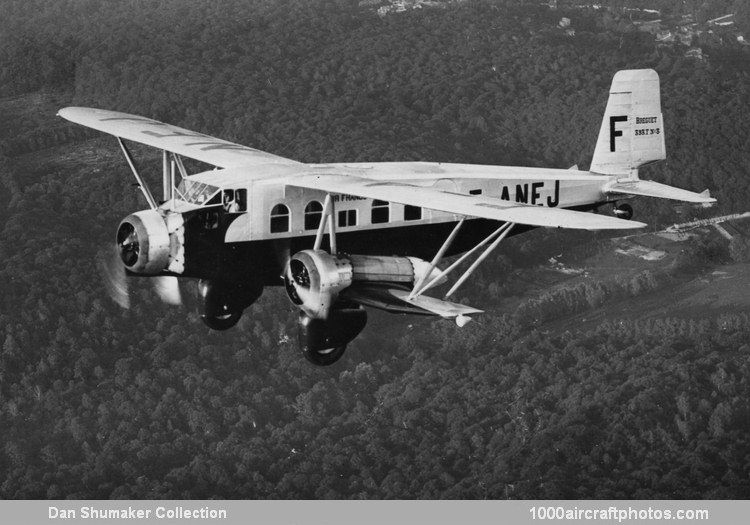02/28/2023. Remarks by Johan Visschedijk: "Based on experience gained with the Bre 27s, Breguet designed the Bre 39 T three-engine transport, and Air Union planned to use this type under the fleet name Golden Clipper.
The Bre 39 T was an all-metal sesquiplane powered by three uncowled 240 hp Gnome & Rhône Titan 5Kd five-cylinder air-cooled radial engines. The prototype, reported both as the Bre 390T and Bre 391 T, made its first flight on January, 30, 1931, but early in July one of the wing-mounted engines shed its airscrew and broke away. The test pilot jumped, but was killed and the aircraft destroyed.
The second aircraft of this series was the Bre 392 T cargo carrier. This was larger, fitted with 300 hp Hispano Suiza 9Qc nine-cylinder air-cooled radial engines, and had strut bracing between the wing-mounted engines and the top of the fuselage. The Bre 392 T, registered F-AMOD (c/n 1), appeared in 1933, but did not go into service.


